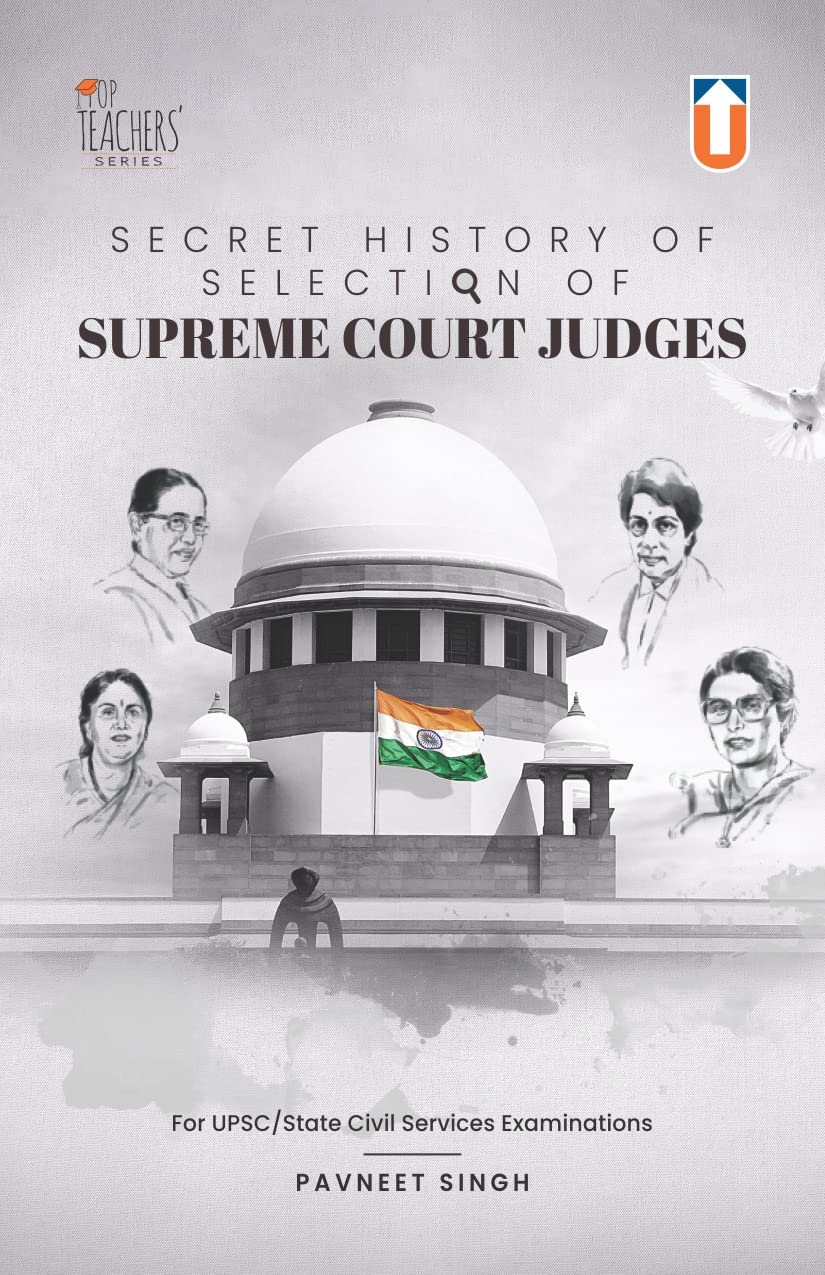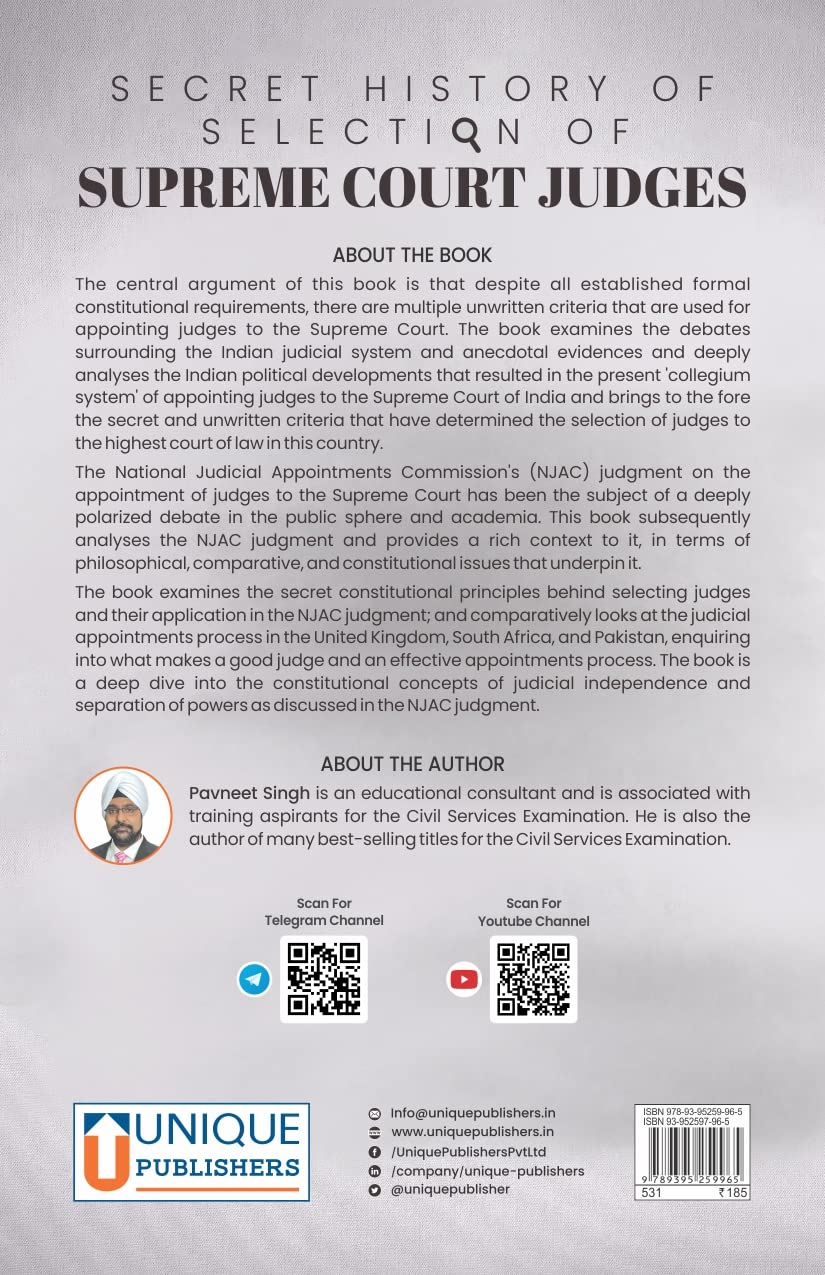Secret History of Selection of Supreme Court Judges
Secret History of Selection of Supreme Court Judges is backordered and will ship as soon as it is back in stock.
Couldn't load pickup availability
Genuine Products Guarantee
Genuine Products Guarantee
We guarantee 100% genuine products, and if proven otherwise, we will compensate you with 10 times the product's cost.
Delivery and Shipping
Delivery and Shipping
Products are generally ready for dispatch within 1 day and typically reach you in 3 to 5 days.
Author: Mr. Pavneet Singh
Edition: 2023
Binding: Paperback
Number of Pages: 200
Release Date: 10-04-2023
EAN: 9789395259965
Languages: English
Package Dimensions: 8.5 x 5.5 x 0.4 inches
About the Book
This book delves into the complexities of judicial appointments in India, focusing on the National Judicial Appointments Commission (NJAC) judgment and the debates surrounding the Indian judicial system.
Key features of the book include:
-
Judicial Independence and Separation of Powers: The book takes a deep dive into these constitutional concepts as discussed in the NJAC judgment, highlighting the ongoing tension between the judiciary and the executive in the Indian context.
-
Judicial Appointments Process: A comparative study of judicial appointment systems in the United Kingdom, South Africa, and Pakistan, examining what makes a good judge and the characteristics of an effective judicial appointments process.
-
Unwritten Criteria in Judicial Appointments: Despite formal constitutional requirements, the book argues that there are unwritten criteria that influence the selection of judges for the Supreme Court, offering a critical view of these hidden factors in the judicial selection process.
-
Analysis of the NJAC Judgment: A comprehensive analysis of the deeply polarized debates on the NJAC judgment, exploring the philosophical, constitutional, and comparative issues at stake.
-
Anecdotal and Political Context: The book sheds light on the political developments and anecdotal evidence that led to the current 'collegium system' in India and evaluates its strengths and weaknesses.
This book provides a critical analysis of the NJAC judgment and offers rich context, comparing it with global judicial systems, making it a valuable resource for anyone studying constitutional law, judicial independence, and the political dynamics of judicial appointments.







